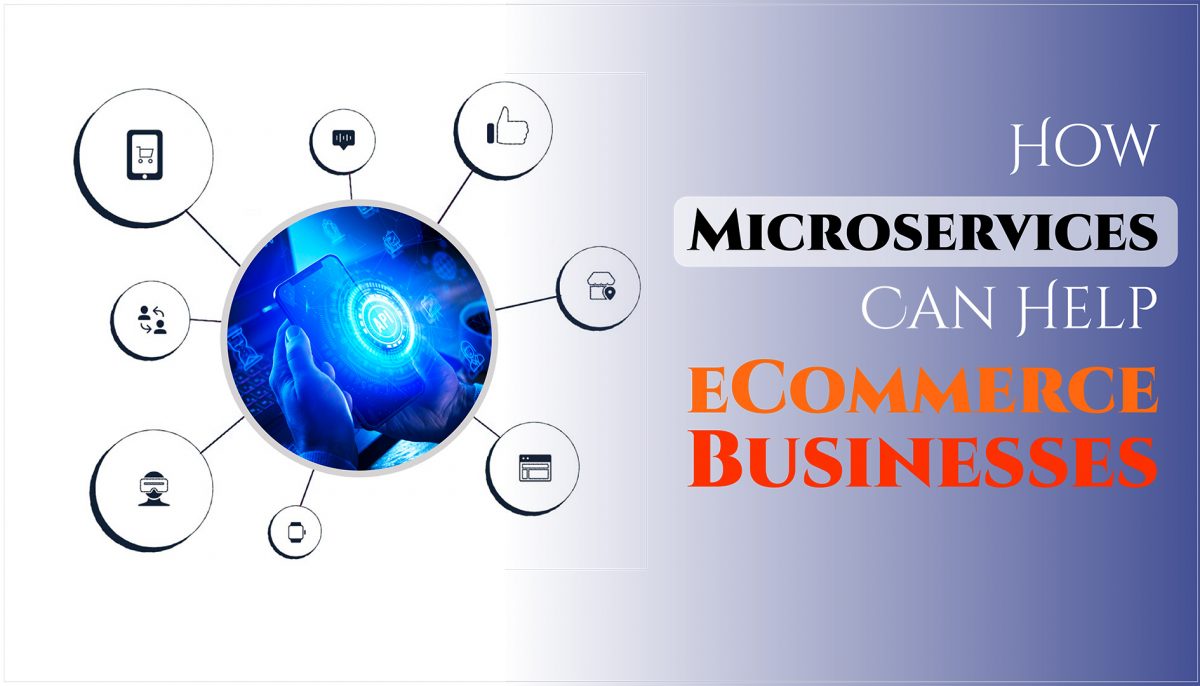
How Microservices Can Help eCommerce Businesses
If you are an eCommerce business operator or owner, you know that time is money. Fortunately, there are many modern advancements in technology that you can leverage to make your operations more efficient and effective, such as microservices.Microservices is an innovative software architecture that breaks down complex applications into smaller, isolated pieces. These individual components are called "microservices," They can be built, deployed, and managed separately. This allows teams to easily update or replace specific parts of the application without having to rebuild the whole system.
Many of us may have already heard about these independent services, but not everyone realizes just how valuable they can be for eCommerce software development companies. Industry leaders like Amazon, Spotify, and eBay have been using them for a while now with excellent results. So, in this blog post, we will talk about how microservices can be essential tools in any eCommerce business's arsenal. Let's dive right in, shall we?
Top advantages of utilizing microservices
Social media is a powerful tool that can help businesses to achieve many business goals. It can also be used to increase online sales by attracting new visitors and converting them into sales. The benefits of using social media to boost eCommerce conversions are as follows:1. Increased scalability
One of the critical advantages microservices bring to the table is scalability. For instance, you can add services to your system to handle increased demand or remove them as demand decreases. This makes it possible to make service-level adjustments in real time without worrying about overloading your network. You can also avoid losing out on potential revenue from customers who can’t access your site due to slow speeds.2. Improved flexibility
Another significant benefit is flexibility. With a traditional monolithic architecture, changes need to be made across the entire system when something needs updating. However, with a microservice-based architecture, you can zoom in on the specific service that needs updating. This makes it much easier and more cost-efficient to make modifications or replacements when needed without investing in expensive rewrites or overhauls every time something needs adjusting.3. Enhanced security
Data protection is always top-of-mind for eCommerce business owners. Another great benefit of microservices is that they can also provide security features that may trump more inflexible architectures. Since each unit operates independently, if one component fails or is attacked by malicious actors, it will not affect the rest of the services in the same system. Also, they enable companies to store and process user data in a secure, isolated environment. This ensures that the user's personal information is protected from unauthorized access, misuse, or alteration. Lastly, they can give customers greater control over their data as they are able to manage, delete and transfer it according to their preferences.Thus, microservices can also help ensure GDPR compliance. GDPR stands for the General Data Protection Regulation (GDPR), which requires businesses to provide users with enhanced personal data protection. With the safeguards from this type of infrastructure, you can better protect your customers and prevent widespread damage.
4. Reduced complexity
The modular design inherent in a microservice-based architecture also reduces complexity by breaking complex tasks into smaller chunks. These are easier for developers to manage and maintain. As a result, developers can readily see which parts of the system need attention at any given time. This allows them to focus on improving those areas rather than spending hours deciphering complex code for a single extensive application.5. Faster deployment times
Because each service is relatively autonomous within the same system, it can be deployed separately without waiting for other components to go first. This leads to faster deployment times overall. In addition, customers can experience less downtime even if they try to access your site during peak traffic periods.6. Greater agility
Finally, microservice architectures allow teams to increase agility. These services enable teams to work on different aspects of a project (such as frontend development or backend development) independently from one another. And they can do this while still maintaining a cohesive product at the end of each sprint cycle (or the time-boxed period to get a set amount of work done). This increases speed and efficiency while allowing teams greater freedom when developing solutions tailored specifically to their customers' needs.7. A more flexible market response
The modular nature of microservices allows for greater flexibility when it comes to adapting applications to changing trends in the marketplace. With these services, organizations can quickly and easily update and adapt their websites, apps, payment systems, etc. Instead of being held back by the restrictions of a single extensive application, businesses can create more reliable websites with faster response times while also reducing the cost associated with development.Additionally, they can provide customers with better user experiences through seamless integration across multiple platforms.
